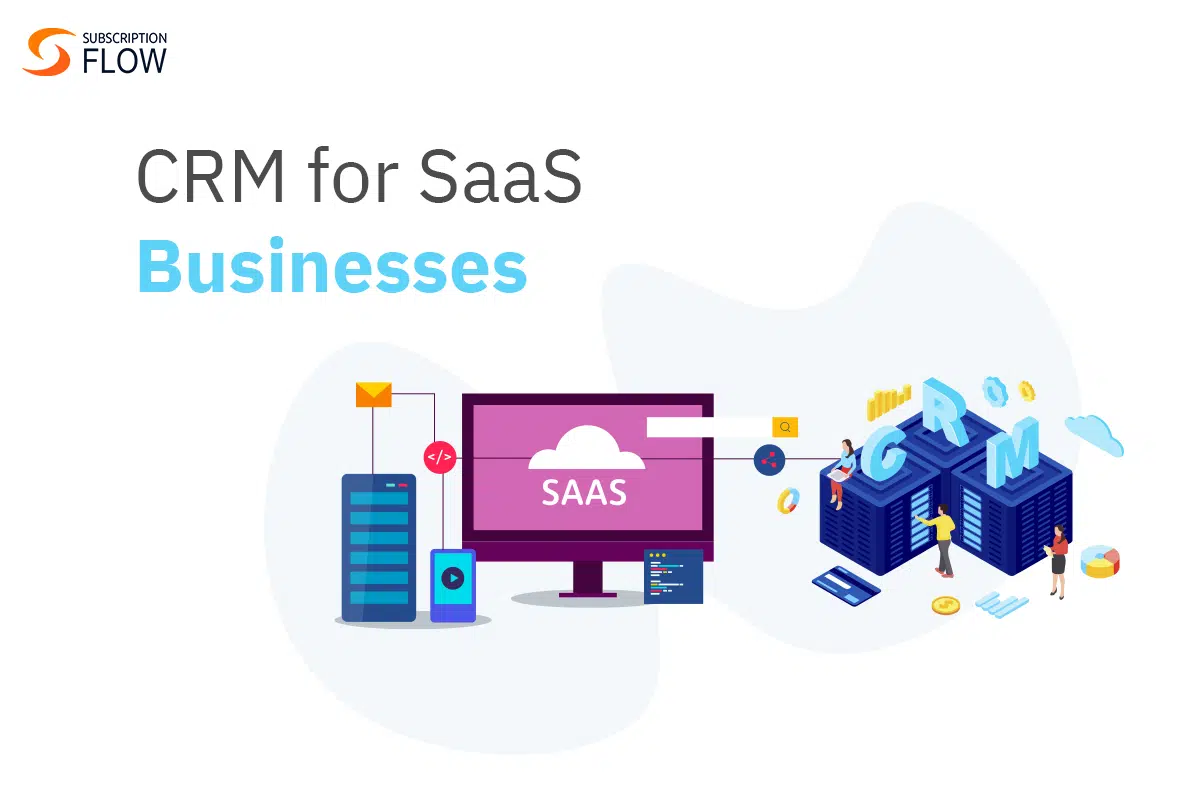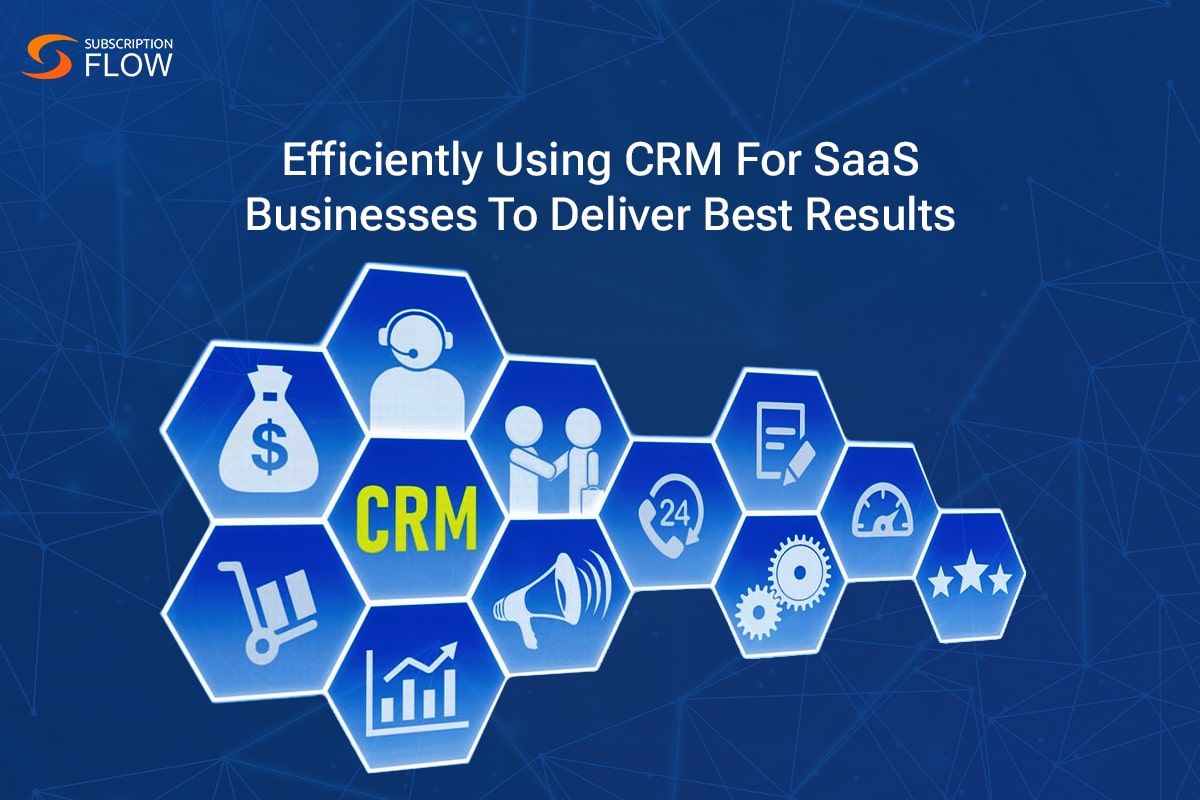
CRM for SaaS Businesses: A Guide to Growth and Customer Success
In the dynamic landscape of Software-as-a-Service (SaaS), customer relationships are the lifeblood of success. Unlike traditional software models, SaaS businesses rely on recurring revenue, making customer retention and expansion paramount. A robust Customer Relationship Management (CRM) system is no longer a luxury but a necessity for SaaS companies seeking sustainable growth.
Understanding the SaaS CRM Imperative
The SaaS model hinges on customer satisfaction and long-term engagement. Here’s why CRM is crucial:
- Recurring Revenue Focus: SaaS businesses depend on subscriptions, making customer churn a critical concern. CRM helps identify at-risk customers and proactively address their needs.
- Customer Lifetime Value (CLTV): Maximizing CLTV is essential. CRM provides insights into customer behavior, enabling targeted upselling and cross-selling opportunities.
- Scalability: As a SaaS business grows, managing customer data becomes complex. CRM centralizes information, streamlining processes and ensuring consistent customer experiences.
- Data-Driven Decisions: CRM offers a wealth of data on customer interactions, preferences, and pain points. This data empowers informed decisions across sales, marketing, and customer support.
- Personalized Experiences: Customers expect tailored interactions. CRM allows SaaS companies to personalize communication, offers, and support based on individual customer profiles.
Key Features of a SaaS-Focused CRM
While general CRM features are valuable, SaaS businesses require specific capabilities:
-
Subscription Management:
- Automated billing and invoicing.
- Tracking subscription renewals and expirations.
- Managing different subscription tiers and pricing plans.
- Integration with payment gateways.
-
Customer Onboarding:
- Automated onboarding workflows.
- Personalized welcome messages and tutorials.
- Progress tracking to ensure customers are adopting the software effectively.
- Feedback collection to identify areas for improvement.
-
Usage Tracking and Analytics:
- Monitoring how customers are using the software.
- Identifying power users and potential churn risks.
- Analyzing feature adoption rates.
- Generating reports on customer engagement and product usage.
-
Customer Support Integration:
- Seamless integration with help desk software.
- Centralized view of customer interactions across all channels.
- Automated ticket routing and escalation.
- Knowledge base integration for self-service support.
-
Marketing Automation:
- Targeted email campaigns based on customer behavior.
- Lead nurturing and scoring.
- Segmentation for personalized messaging.
- Integration with marketing automation platforms.
-
Account Management:
- Dedicated account managers for key clients.
- Regular check-ins and proactive support.
- Upselling and cross-selling opportunities.
- Relationship building and customer advocacy.
-
Reporting and Analytics:
- Customizable dashboards and reports.
- Key performance indicator (KPI) tracking.
- Churn analysis and retention rate monitoring.
- Customer satisfaction (CSAT) and Net Promoter Score (NPS) tracking.
Choosing the Right CRM for Your SaaS Business
Selecting the appropriate CRM is a critical decision. Consider these factors:
- Business Size and Complexity: Small startups may benefit from simpler, more affordable CRMs, while larger enterprises may need more robust solutions.
- Integration Capabilities: Ensure the CRM integrates seamlessly with your existing tech stack, including accounting software, marketing automation platforms, and customer support tools.
- Scalability: Choose a CRM that can grow with your business and accommodate increasing customer data and user volume.
- Ease of Use: A user-friendly CRM will encourage adoption and maximize its effectiveness.
- Industry-Specific Features: Some CRMs are tailored to specific industries, offering specialized features and workflows.
- Pricing: Compare pricing models and consider the total cost of ownership, including implementation, training, and ongoing support.
Popular CRM Options for SaaS Businesses
- Salesforce Sales Cloud: A comprehensive CRM with extensive customization options and a wide range of integrations.
- HubSpot CRM: A user-friendly CRM with a strong focus on inbound marketing and sales.
- Zoho CRM: A versatile CRM with a wide range of features and affordable pricing.
- Pipedrive: A sales-focused CRM designed for small and medium-sized businesses.
- Freshsales Suite: A CRM with built-in sales automation and AI-powered features.
Implementing a CRM for SaaS: Best Practices
- Define Clear Goals: Establish specific objectives for your CRM implementation, such as improving customer retention, increasing sales, or streamlining support processes.
- Involve Key Stakeholders: Gather input from sales, marketing, customer support, and product teams to ensure the CRM meets the needs of all departments.
- Data Migration and Cleansing: Ensure accurate and complete data is migrated to the CRM.
- Training and Adoption: Provide comprehensive training to all users and encourage adoption by demonstrating the benefits of the CRM.
- Customization: Customize the CRM to align with your specific business processes and workflows.
- Ongoing Optimization: Continuously monitor CRM performance and make adjustments as needed to maximize its effectiveness.
The Future of CRM in SaaS
The role of CRM in SaaS is evolving rapidly. Expect to see:
- AI-Powered CRM: Artificial intelligence (AI) will play an increasingly important role in CRM, automating tasks, providing insights, and personalizing customer experiences.
- Hyper-Personalization: CRM will enable even more granular personalization, tailoring interactions to individual customer preferences and behaviors.
- Predictive Analytics: CRM will leverage predictive analytics to anticipate customer needs and proactively address potential issues.
- Mobile-First CRM: Mobile access to CRM data and functionality will become increasingly important for sales and support teams on the go.
- Integration with Emerging Technologies: CRM will integrate with emerging technologies such as IoT and blockchain to provide even more comprehensive customer insights.
Conclusion
In the competitive SaaS landscape, a well-implemented CRM is a strategic asset. By centralizing customer data, automating processes, and personalizing interactions, CRM enables SaaS businesses to build stronger customer relationships, reduce churn, and drive sustainable growth. By carefully selecting a CRM that aligns with their specific needs and following best practices for implementation and optimization, SaaS companies can unlock the full potential of CRM and achieve lasting success.

